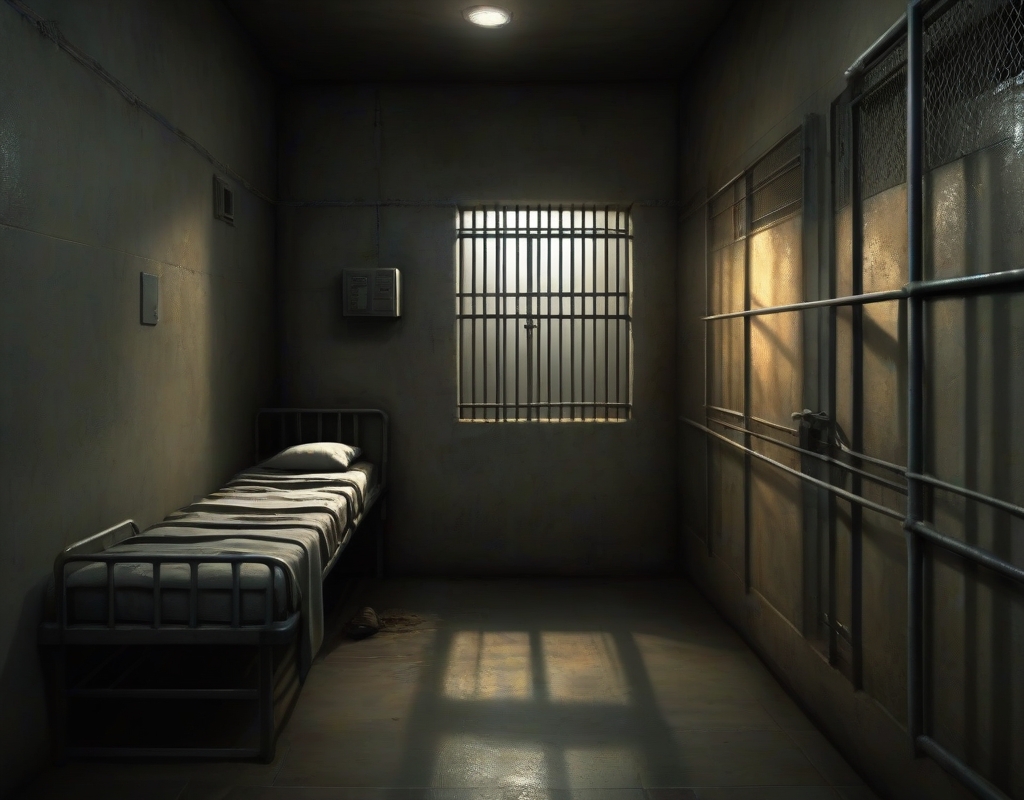Luigi Mangione, embroiled in a case that has captured the nation’s gaze, currently resides in the State Correctional Institution (SCI) Huntingdon. His solitary confinement is not by conventional punitive measures but as a precaution to ensure his safety amidst charges that span from forgery to more severe felonies in New York City. An examination of his daily life and imminent legal battles provides a glimpse into the ordeal of an individual in the vortex of a high-stakes judicial process.
**Protective Single Cell Accommodation**
Mangione has been assigned a single cell to minimize the risk of conflicts with other inmates and to protect him given the severity of his charges. SCI Huntingdon, located near Altoona, Pennsylvania, was selected due to its proximity to Blair County courthouse—a strategic choice considering Mangione must appear there to face charges including unlicensed firearm possession, forgery, and falsifying identification to police authorities.
Though he is isolated from the general population, this arrangement differs significantly from solitary confinement used as a punitive measure. His current housing situation is precisely geared towards preserving order within the facility while upholding his rights as a detainee who is presumed innocent until proven guilty.
**Routine and Daily Life in Detention**
Within the confines of SCI Huntingdon, Mangione’s daily life is structured yet monotonous. The meals provided are constructed by dietitians ensuring nutritional sufficiency despite cost constraints. Breakfast options include fruit, grits, bread, scrambled eggs, and coffee. Lunch may feature items like porcupine meatballs with mashed potatoes, while dinner can vary from mac and cheese to a pasta bean casserole.
While his interaction with others is limited, the institution grants increasingly longer durations outside his cell as his custody level adjusts—highlighting the importance of such social interactions for mental health and rehabilitation, core ambitions of the correctional system.
**Navigating Complex Legal Waters**
Mangione’s housing at SCI Huntingdon also facilitates easier access to the nearby Blair County courthouse, streamlining necessary legal proceedings. However, the charges he faces there are but a segment of the larger legal labyrinth awaiting him. More grave accusations in New York City loom over him, including murder and dual counts of possessing a loaded firearm allegedly tied to the killing of UnitedHealthcare CEO Brian Thompson.
Mangione’s arrest itself was a spectacle, marking the culmination of an intensive manhunt. Captured at a McDonald’s in Altoona, his arrest was precipitated by a public tip-off. This scenario underscores the cooperative dynamics of law enforcement across different regions and underscores the critical role of community vigilance in apprehending suspects in high-profile cases.
**Adjusting to Life with Legal Uncertainties**
As judicial processes unfold in Pennsylvania, SCI Huntingdon provides a controlled yet supportive environment for Mangione as he confronts significant legal hurdles. His situation exemplifies the intersectional challenges encountered when state and federal legal systems converge—requiring meticulous coordination to uphold legal integrity.
Each procedural step, from hearings to potential extraditions, sheds light on the intricate paths navigated by defendants in the U.S judicial landscape, especially those facing severe allegations reminiscent of Mangione’s predicament.
**Perspectives on High-Profile Incarcerations**
Experts suggest that Mangione’s circumstances spotlight systemic necessities for reforms in the treatment and management of prominent detainees. They argue for a nuanced balance between ensuring public safety and fostering conditions conducive to rehabilitation and psychological well-being, particularly under intense public and legal scrutiny.
Dr. Emily Carter, a criminal justice reform specialist, articulates this balance: “Handling high-profile detainee cases involves a delicate equilibrium. While prioritizing public safety, it’s imperative that institutions also support environments that facilitate genuine rehabilitation and attend to mental health, all while under intensified observation.”
**Concluding Reflections**
The intersection of public interest with individual rights is starkly illustrated in Luigi Mangione’s ongoing judicial episodes. His life within the confines of SCI Huntingdon speaks to the calculated measures taken to not only ensure communal and personal safety but to respect foundational legal principles advocating presumed innocence until proven guilt.
As developments in his cases persist, they not only captivate public attention but also resonate with broader implications for legal standards and the treatment of individuals accused of serious offenses in the future. These proceedings will undoubtedly hold significant sway, potentially influencing judicial precedents and shaping future approaches to managing similar high-stakes cases.




